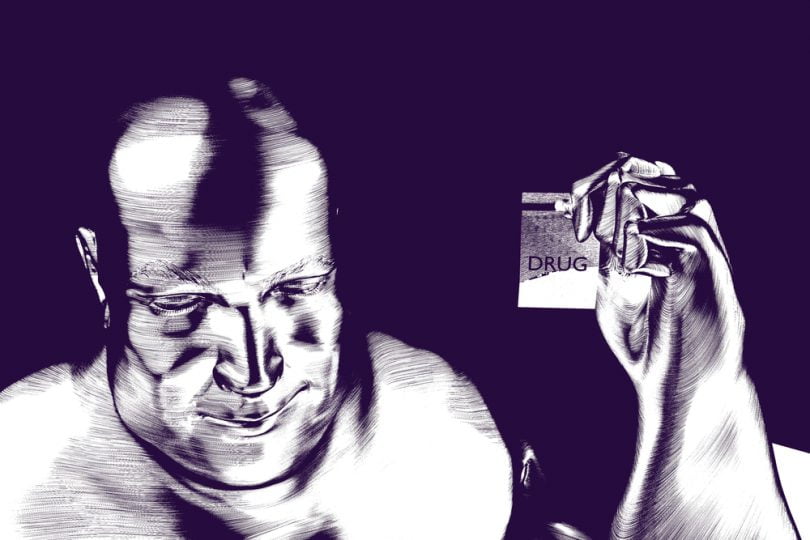Ketamine Causes Brain Damage
Before discussing ketamine, it’s important to understand how deeply it affects your brain. According to the National Institute on Drug Abuse, ketamine can cause permanent damage. Abusing the drug at high doses can lead to extremely dangerous side effects, including anxiety, memory loss, and impaired motor function. Research has shown that the long-term effects of a dissociative drug, like ketamine, include depression, speech difficulties, suicidal thoughts, and social withdrawal. When you choose to abuse ketamine, it not only affects you for the momentary high, but it affects your brain for the long-term as well.
Ketamine is a Dissociative Drug
According to the Drug Enforcement Administration, ketamine is a dissociative drug that causes hallucinations. It’s used commercially in small doses as a sedative by hospitals and veterinary clinics. This drug is rarely found on the street. Most people get the drug in clubs, parties, or raves. It’s packaged in a variety of different ways for users to buy including small paper bags, small plastic bags, and capsules. Ketamine is abused in a variety of different ways depending on whether it’s in a powdered or liquid form. Powdered ketamine, for example, is snorted or smoked in marijuana or tobacco cigarettes. Liquid ketamine is consumed by being injected or mixed into a drink.
When consumed, Ketamine causes a largely hallucinatory effect. Its effect is short, lasting anywhere from 30 to 60 minutes. This is different from other hallucinatory drugs such as LSD, which produce a high that lasts a couple of hours. Ketamine can either be found by itself or along with other drugs such as cocaine, MDMA, amphetamine, and methamphetamine. Combining the drug with another can cause even more dangerous effects and can even lead to being deadly.
Ketamine goes by a variety of different names including “Super K”, “Vitamin K”, and “Cat Valium”. The effects of ketamine go by a world of different names as well. These include “baby food”, “K-land”, “K-hole”, and “God.” No matter what you call it at a party, the drug has the same debilitating effects and can cause a long-term addiction.
The Steps to Take to Recover From a Ketamine Addiction
Being addicted to ketamine leads to a downward spiral including health, financial, and relationship problems. If you’re dealing with a ketamine addiction, it may seem as though you’re stuck in a hole. You may visualize climbing yourself out of it one day, but the physical act might seem impossible. The most important thing to remember is that you don’t have to deal beating this addiction alone. Read on to learn more about the steps that you can take in order to recover from a ketamine addiction for good.
- Reach Out for Support
Addiction is a disease. Just like any other disease, you’re going to need outside help in order to make the steps needed towards recovery. According to the National Institute on Drug Abuse, drug addiction affects the way that the brain works by altering the brain’s “reward circuit.” As a person continuously uses drugs, the brain adjusts accordingly and limits the effect of a drug’s high. A person then may consistently keep using the drug in order to chase the high that they felt when they first tried the drug. But, the truth is that it’s impossible for them to feel that same high again, due to the brain building its tolerance. Dealing with a chemical imbalance in your brain isn’t something that you should handle alone. You might believe that the only option you have is to tackle this addiction on your own, but that’s just not the case. Don’t be afraid to reach out to the many resources available in order to get help.
- Look into Treatment
Ketamine addiction is a beast, and it requires a beast of a treatment. In order to fight back against ketamine addiction, there are a variety of different factors that combine in order to create an effective ketamine addiction treatment.
- Therapy: Therapy can be a fantastic way to learn from the experiences of other individuals who have gone through the same things that you have or to learn from a professional. Depending on your particular needs and wants, you can choose to go to individual therapy, group therapy, or family therapy. Cognitive Behavioral Therapy is another type of therapy that is often used to help treat drug addiction. According to the American Psychological Association, Cognitive Behavioral Therapy is a psychological treatment that makes a clear effort to change a patient’s thinking pattern.
- Detoxing: One of the first steps towards fighting ketamine addiction is completely detoxing the body of the drug. This can often be the hardest thing to deal with throughout the process of recovery. Unlike alcohol and opioid abuse, there isn’t a medication that you can take in order to ease the withdrawal process. Some of the effects of ketamine withdrawal that you can experience while getting off of the drug are a loss of appetite, ketamine cravings, tiredness, chills/sweating, restlessness, anxiety, depression, and irregular heartbeat. These symptoms last anywhere from four to six days. In order to detox safely, be sure to research detox programs in your area so you can be observed by a medical professional during the process. Ketamine withdrawal can be a very hard process to go through, and you need all the support that you can get during that initial time period.
Recovery From a Ketamine Addiction is Possible
Overcoming ketamine addiction may be a hard battle to win but remember that you are a warrior. Many people have suffered through this addiction and made it through the recovery process as a stronger, smarter, and brighter person. Choosing to beat your ketamine addiction is a hard decision to make, don’t be afraid to reach out! Talk to close friends and family about your addiction and reach out to community groups that offer support to those who are addicted to drugs, or specifically ketamine. If you can’t find groups throughout your community, there are many groups online that can provide the same type of support. Remember that you are stronger than your struggles, and a brighter day free from ketamine addiction will come soon. For more information on how to stop your addiction and get help, contact us at (877) 322-2450.
Sources
[1] National Institute on Drug Abuse. (n.d.). What Are the Effects of Common Dissociative Drugs on the Brain and Body? Retrieved from https://www.drugabuse.gov/publications/research-reports/hallucinogens-dissociative-drugs/what-are-effects-common-dissociative-drugs-brain-body [2] Department of Justice/ Drug Enforcement Administration. (n.d.). Ketamine Fact Sheet. Retrieved from https://www.justthinktwice.gov/sites/justthinktwice.com/files/Ketamine_factsheet.pdf [3] National Institute on Drug Abuse. (n.d.). Understanding Drug Use and Addiction. Retrieved from https://www.drugabuse.gov/publications/drugfacts/understanding-drug-use-addiction

















